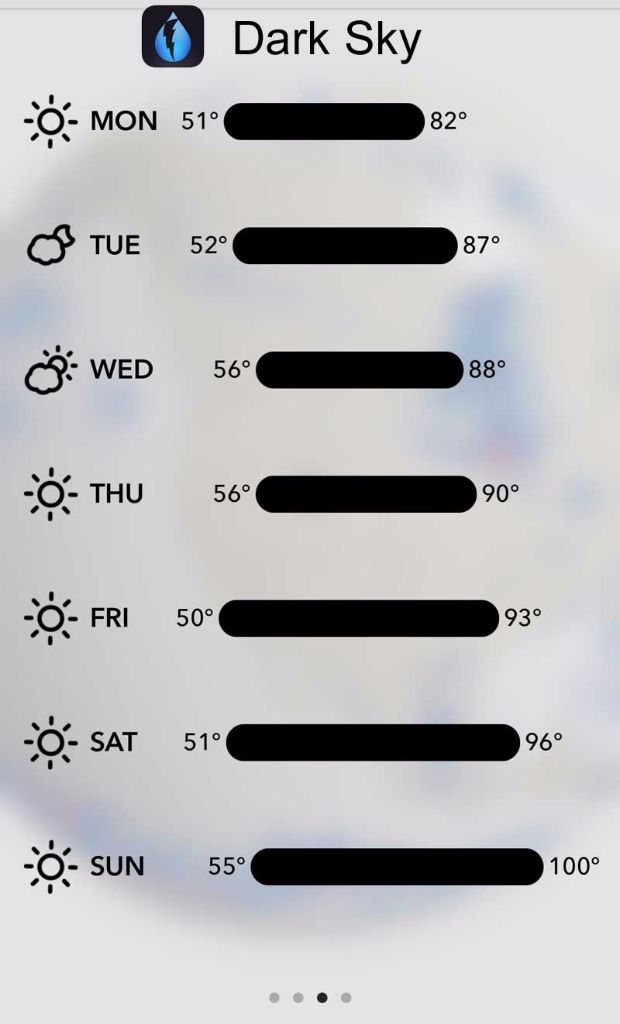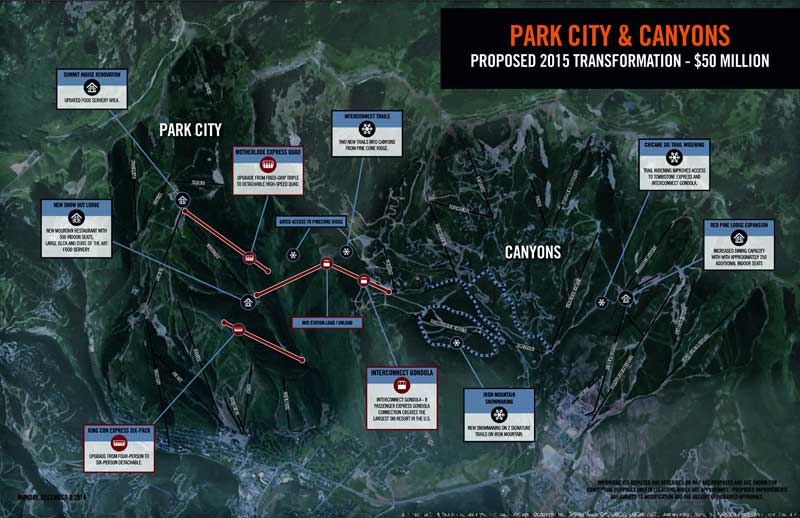Let’s Use Research to Pay the Most Effective Park City Teachers More
I love doing the Park Rag for a number of reasons but perhaps the most important is because I am always learning. A case in point is the letter I received from the co-chairs of the Park City Education Association (PCEA). I had written an article about teachers contracts that contemplated whether we should pay teachers with master’s degrees more (when research says the same teacher with or without a masters degree is just as effective at teachings kids) and asked whether we should be looking for a better way to figure out how we pay the best teachers what they are worth. Ed Mule and Jim Fleming of PCEA wrote a very nice letter that concluded the “Park City School District’s new licensed employee contract may not be perfect but it is a good compromise between a more traditional teacher contract and an incentive based contract.”
They also point out that while research doesn’t support master degrees as a means to ensure more effective teachers, the National Board Certifications do. I always like to fact check statements (as best I can) and in this case what Mr Mule and Fleming said is spot on (per research). Consistently research finds that National Board Certified teachers perform better than average in schools with a higher than average socioeconomic class. In less advantaged areas, that’s not necessarily the case. Yet, we are talking about Park City, which has higher incomes on average, so the research would support the national board certification as a way to define teachers that are more effective.
Yet, I delved into a 2015 study from Washington State which seems to further support my previous “Moneyball article” on figuring out a different way to compensate the best teachers. While the study begins by providing an overview of previous research on National Board Certifications, it dives deep into the fields where the certifications produce the most effective results. For instance it says, “we estimate that NBCTs [National Board Certified Teachers] produce annual learning gains that are about 4-5% of normal learning gains at the elementary school level, about 15% of annual learning gains in middle school math, and about 4% of annual learning gains in middle school reading.” They later talk about the 15% gain in math effectiveness and equate that to an additional 1.5 months of learning. Holy crap!
What this tells me is that Park City should compensate not only for National Board Certifications but we should be compensating more for national board certifications where there is so much more learning by students — and that gets into the Moneyball aspect of being strategic about how we compensate teachers. Therefore, middle school math teachers should see larger gains in salary based on passing the certification than middle school English teachers (who should still be compensated more, but maybe not at the level of math teachers taking the test). There may be other research based ways to determine how to incent English teachers who are more effective.
Further delving into this study, it marks a difference between teachers who pass the National Board Certification on the first try, rather than subsequent attempts. They say, “Except in middle school mathematics, we do not find evidence that teachers earning certification through a retake are more effective than non-NBCTs [non National Board Certified Teachers” So, except in middle school math, if a person doesn’t pass the certification on the first try, they aren’t generally found to be more effective. That appears that it should be factored in as well.
I understand that what I am suggesting isn’t easy — in negotiations or practice. It’s hard to tell a language teacher who has passed a National Board Certification on the first try that they aren’t getting the same incentive pay as the math teacher but appears to be what the science says. I suppose it’s not that different though than a state like Utah telling it’s teachers to teach Darwinism instead of Intelligent Design. Sticking to research is often harder than appeasing the masses.
In this case, though, it’s important. While the subject we are discussing are teacher salaries, the impact we are really considering is educating our children. Mr. Mule and Mr. Fleming said in their letter to Park Rag, “You will hear us argue that they [higher degrees and endorsements] can’t hurt and should be encouraged in the teaching profession.” I’m not sure if that’s true. If we pay one dollar extra for things like masters degrees that don’t seem to have any impact on student outcomes, that is one dollar less that can be paid to teachers that pass their National Board Certifications on the first try. I believe those decisions do matter.
It really is a zero sum game. Every dollar we spend on something that doesn’t matter, is a dollar less we spend on something that does. I hope in two years, when the next round of salary negotiations take place, both the school administration and teachers focus on the one thing that really matters. RESULTS. Perhaps passing the National Board Certification isn’t the end all and be all, but it seems like the most scientifically proven piece of data that indicates whether a teacher will better educate our children. I think that’s something that Mr Mule, Mr Fleming, probably the school board, and I would agree on.
I hope on the next teacher contracts, we can take a different approach and focus less on the things that sound good and more on what provides the best results for our children…. even if the process is a little painful.
A Response to Our Post on Teacher Contracts and Baseball
I received a very thoughtful letter from Ed Mulick and Jim Fleming, co-presidents of the Park City Education Association, in relation to my post on recent teacher contracts. Their letter provides information on research and their perspective on salaries.
Dear Park Rag,
As a teachers for over 25 years and most recently Co-Presidents of PCEA, you will not hear us arguing against your recent statements regarding the direct correlation, or lack thereof, between higher degrees and effective teaching, nor will hear us argue that endorsements always lead to more effective teaching. But you will hear us argue that they can’t hurt and should be encouraged in the teaching profession.
Good teaching is a combination of many variables. Some can be taught, but others are innate. It’s a cross between science and art. A good teacher needs to have many skills, a blue-collar work ethic, the mind of a scholar, the motivational skills of a good coach, and above all the heart of a understanding counselor. For many teachers, it’s a calling as much as a career.
Having said that, there may be one program out there that more reliably produces better teaching than any other, that is National Board Certification. There have been several studies that seem to indicate that obtaining a National Board Certification actually correlates directly into better teaching, whether you are a novice teacher or a master teacher. Under our current contract Park City teachers can earn more money can if they obtain this endorsement.
Please see the following link to learn more about this endorsement, http://www.edweek.org/ew/articles/2015/04/01/board-certified-teachers-more-effective-new-studies-affirm.html
It is important to remember, since the passage of SB 64, teachers don’t automatically advance onto their next step each year, unless they pass their educator evaluations. Park City Teacher Association supports SB 64. Park City School District’s new licensed employee contract may not be perfect but it is a good compromise between a more traditional teacher contract and an incentive based contract.
Thank you,
Ed Mulick and Jim Fleming, Co-Presidents of PCEA
What Baseball Could Teach Us About Park City Teacher Contracts
Park City School Superintendent Ember Conley often champions the idea of using research to determine how to best serve students’ needs. I’ve been a big proponent of Dr Conley in the past and think she has our students’ best interests at heart.
Yet, it gives me pause when I read last week in the Park Record that “The Park City School District and its teachers should be commended for agreeing to a salary package that encourages teachers to strive to become better educators….The agreement, which was ratified with overwhelming support by the Park City Education Association (which represents the teachers) and unanimously approved Tuesday by the Park City Board of Education, gives raises to teachers for tenure and pays them more for having a Master’s Degree.”
The problem is that research doesn’t backup the claim that teachers with a Master Degree are better educators than those without the degree. A 2014 Brookings Institute paper says, “The fact that teachers with master’s degrees are no more effective in the classroom, on average, than their colleagues without advanced degrees is one of the most consistent findings in education research. In a study published in 2011, Paul Peterson and I confirmed this finding by comparing the student achievement of the same teachers before and after they earned master’s degrees, and found no impact.”
Let’s look at that 2011 study’s highlights. They say:
- Majoring in education is not associated with teacher effectiveness.
- University attended for college is not associated with teacher effectiveness.
- Acquiring a master’s degree is not associated with teacher effectiveness.
- Teachers become more effective with a few years of teaching experience.
- Teachers may become less effective later in their careers.
Wow. It sounds like the real world. Just because a person gets an MBA (Masters in Business), doesn’t make them better at running a company. It gives them information but what they do with that information is what matters. My wife is a Physical Therapist. She happens to have a Doctorate in Physical Therapy (the highest level of education for PTs) but she’ll be the first to tell you that a practitioner with a master’s degree ( a “lesser” degree) can be just as good. Success depends on the person.
I don’t mean this as any sort of attack on teachers and salaries. I think we all could agree that teachers who educate our children better should get paid more than teachers that don’t. Yet, it appears that Park City’s teacher contracts are based on:
- Educational degree
- Certifications
- Endorsements
- Professional Development
- Research Project
What do any of these have to do with outcomes? These factors could be a big differentiator, depending on the person, but they are not an indicator of teaching effectiveness. A bad teacher could get a masters degree, a certification, an endorsement, attend professional development courses, and complete a research project. It’s really just a cost benefit analysis:
- How much will it cost to do these things?
- How much time will it take?
- How much more salary will I get?
- How much longer will I teach?
It’s a math formula; not an indication of teaching aptitude.
I would never claim to be an education expert, but I do understand logic. It seems our School District negotiated contracts based on easy to verify stats, instead of REAL teacher effectiveness. Perhaps they can’t be blamed because 96% of schools do it the same way?
Yet, I expect more. If we want to truly be one of the best school districts in the country then we need to be different than the “96%”. If we are going to pay our teachers more than every other school district in the state, then let’s make sure we are paying the right teachers.
I’m a baseball fan and baseball already struggled with this. There’s a book called Money Ball about Major League Baseball and how most major league teams “looked at a baseball card” to determine their roster. Home Runs, walks, strike outs, and of course the player’s picture, were all influential in how most teams built their lineups. Yet, the General Manager of the Oakland Athletics decided to use real data in order to build a successful team. He built one of the best teams, at a good price, and now the concept is copied by most clubs.
Could this work in our schools? Yes. There is already a paper published on it.
I guess I am a little disappointed in hearing that we built our educational team based on factors that seem like a simple baseball card. How many years have you worked? Do you have a Masters? Did you do a project? Imagine the Kansas City Royals baseball team building a team around people who have played a specific number of years, attended a requisite number of hitting camps, and wrote a paper on baseball. It’s frankly crazy.
Instead, shouldn’t we find a way to determine which teachers impact our students the most? Shouldn’t we use research based on student data to build the best team? Shouldn’t we reward those teachers on outcomes and not inputs? I know it’s likely not easy but being the best never is.
I truly hope there is something I’m missing. I hope that Dr. Conley is doing something differently. I hope salary decisions aren’t just based on years and school. I hope both the School Administration and teachers have come up with a way to use data to ensure that teacher effectiveness is the only priority.
I would rather pay the next great teacher (a rookie) far more to join my team (and has 20 years of baseball teaching ahead of them) than the veteran who is washed up and is just cashing checks.
Unfortunately, I’m not sure that’s what our new teacher contract accomplishes.
Recycling Glass is Now Easy
We received word from a neighbor that Recycle Utah had put up glass recycling containers in places around town. I knew that it was possible to take glass into town and recycle it, but I was too lazy I never seemed to go to that much effort. Now its easy:
Here are the 4 new locations:
- 5053 W. Kilby Road, Park City
- Jeremy Ranch Park and Ride, Rasmussen Road, Park City
- Willow Creek Park (by tennis courts in Ranch Place), Park City
- Triumph Gear, 6125 Silver Creek Drive, Park City
The great thing about recycling glass is that most (if not all of it is reusable). If you’re planning on going it appears they separate it into brown glass and clear/green. So, if you want to save yourself some time, you may want to presort it.
This is great news.
The Details of Affordable Housing Are Tricky
As part of the new “Whole Foods” development across from Ruby Tuesday’s, there is a requirements to build affordable housing. The developer is meeting this requirement by building twenty, 800 sq foot apartments on top of a building in the development. The design is a 1 bedroom, 1 bath, with a kitchenette design.
One of the great things about this development is that they are actually building affordable housing. Many developers just pay money to get out of the requirement. So, that is a positive. Yet, when I look at the affordable housing component of this project, I wonder if it really passes the sniff test.
This starts with the price that can be charged for these units. The money that can be charged is a complex calculation but it comes out to about $950 per month. This could be fine, depending on the salary of the people living there. Ray Milliner, the County Planner on the project, said this morning on KPCW that the plan was to provide these units to people working at businesses in the development. So, let’s say a person gets a job as a cashier at the new Whole Foods. It appears that pays between $11-$12 per hour. That works out to about $2050 per month for a full-time employee. $950 is way over the portion of a salary someone making $2050 a month should spend on rent. Calculations say the maximum amount is around $600 on rent per month ($ 2050 X 12 months /40).
So, naturally the only way that really works is to have a partner or roommate. If both people make about $2000 a month, then $950 falls into a reasonable, albeit at the top of the range, amount to pay in rent. Yet, remember that the idea is for the people living there to work there. That is probably why there are only 10 parking spots allocated to these 20 units. It’s really hard for me to believe that each apartment’s second renter will work in the development, too. It’s still a little hard for me to believe that they would work within walking distance at a place like Ruby Tuesday’s or Walmart. It’s gets easier to believe some people might take the bus to Kimball (or Park City) and work there. These easiest outcome for me to see is that almost every apartment will have at least one car.
Perhaps this is a good test to see if public transportation really solves this type of problem. Perhaps jobs pay more than I think. Perhaps Whole Foods will support this and ensure that they are filled with their employees.
That said, when I read that the developer has planned 20 small apartments, designed to need 2 renters each to make them affordable, with the plan that all 40 occupants will work in the development (i.e. Whole Foods or a fewer smaller retail shops), and there are only 10 parking spaces… it makes me say “huh?” It definitely sounds good. It will be interesting to see what reality looks like.
I’ve heard arguments on both sides of affordable housing. Some people love it and some people hate it. I personally think apartments generally make up a great component of affordable housing. Yet, when the rubber hits the road and I see how it’s actually executed, it give me pause. Doing the wrong thing for the right reason usually doesn’t turn out well.
This should be a good litmus test to see if our local government has this concept under control and is making the right decisions.
Feeling Hot Hot Hot
I’ve been doing some research on historical temperatures around Park City to better understand how Park City weather has changed over the past decades. Using NOAA data, the longest continuous set of data from a weather station seems to be from Parley’s Summit. Data goes back about 28 years.
The hottest day on record was September 7, 2004. It was almost 101 degrees that day. Looks like we could challenge that this week.
Have a Kid Who Likes Bikes? Join us at the Sheriff’s Bike Rodeo on Tuesday!
The Sheriff’s office, in junction with the Health Department, are holding a bike rodeo on Tuesday (6/23) from 4-6PM at the Sheriff’s office. They plan on having a bicycle safety course, bike/helmet inspections, and even hot dogs and prizes.
Even if your child doesn’t like bikes yet, but would love meeting a “police man”, they plan on having Sheriff’s motorcycles and bicycles on display too. It should be a great event and it’s a nice way to kick off the official start to Summer.
The New Whole Foods Tap Room Is Likely More Than the Developer Is Indicating
As many people know, a developer wants to restructure a development agreement for an area across from Ruby Tuesdays called “Canyon Corners” in order to put in a new Whole Foods (and other retail). I previously had concerns that the “Tap Room” addition to the grocery store should require the developer to meet both affordable housing requirements and traffic impacts like its both both a grocery and a bar/tavern.
This Tuesday, the Snyderville Basin Planning Commission is holding a public hearing regarding the Canyon Corners development. In the Staff Report, it makes reference to the tap room and says:
“At the May 12, 2015 Planning Commission meeting concerns were expressed that the use of Building A would exceed that of a grocery store, as there was a “tap room” proposed. The applicant has clarified what this would entail, and indicated that it would be an additional component in the overall deli/prepared foods area of the store. There are no plans to use the site as a type of night club, bar or speakeasy, rather the applicant envisions it as secondary to the primary use.”
First, as I stated in the previous article, I love the idea of a tap room. I just wish it could have Rogue Dead Guy Ale on tap. That said, traffic and affordable housing are big issues and we need to make sure we account for each appropriately and accurately in every development agreement.
While it appears there are assurances from the Developer that the tap room is just part the deli, I’m not so sure. First, let’s look at the press release from Whole Foods:
“This store will be the first Whole Foods Market in Utah to feature its own taproom with local beer and wine on tap, as well as a world-class resort pub menu with separate fast casual dining and pub seating inside the store.”
That doesn’t sound like it’s just part of the deli and prepared foods section.
Second, do a quick search for Whole Foods Tap Room on Yelp. First, your average Supermarket Deli doesn’t get lots of Yelp reviews. I happened to look at Reno’s Whole Foods Tap Room. Here is an example review:
“Great beer selection & tastes food. Bartender was kinda swamped, they need more servers, but she was nice (and hot). Would recommend if you are looking for great beers and delicious food. Only complaint was the hippy guy bugging me about how awesome the place was ( I am pretty sure he worked at the whole foods). Anyway, go, drink, eat.”
Again, this doesn’t seem like the soft drink station next to the slices of pizza. It seems like, well something similar to the Red Rock in the Salt Lake City Airport. It’s not going to be a Studio 54 but it’s not going to be the 6 chairs in front of Starbucks at Fresh Market either.
Third, let’s look at the menu of one of the Whole Foods “Lone Elm” Tap Room in Kansas. It seems like your average brewery menu. Here is page 1 of the the Tap Room’s menu. They do seem to vary by location, so perhaps we have guarantees that this won’t turn into a mini Squatters.
![]()
The final reason I have concerns over this is related to what these look like. Here are some pics of Whole Foods Tap Rooms:

![]()
Please don’t get me wrong, I hope the new Whole Foods has a tap room, and I hope it is was on the most unique bars and restaurants in Park City. I hope it ends up with an outside patio. I even hope they follow the lead of the Whole Food Tap Room in Columbus that let’s local breweries take over the bar for “Thirsty Thursdays.”
Yet, I also know how much of a mess traffic can will be on Landmark Drive by the Outlet Mall. If the tap room component of Whole Foods reaches anything near its potential it will exacerbate that. Likewise, while there is now an affordable housing component to this development, it should be in line with those required by a bar/restaurant. Perhaps not at the full requirement but somewhere in between.
I hope when the Planning Commission looks at this part of the development, they will go beyond what the developer says and plan for the likelihood that this little bar and restaurant is going to be pretty busy.
Is The Park City City Council Risking a Bad Outcome With Mountain Accord?
I received an anonymous comment about yesterday’s Park City City Council Meeting on Mountain Accord. The person makes a very good point about how the Mountain Accord may play itself out, given how the city council is approaching the issue.
It seems the only council member not willing to risk a bad outcome for Park City (by trusting Mountain Accord) is Dick Peek and he is retiring this year. That’s not good news.
According to the individual…
The Park City council voted 4 – 1 last night YES to Mountain Accord studying all non auto connections between Park City and the Cottonwood Canyons. The dissenting vote (The Mayor doesn’t vote but stated his opposition) was from council member Dick Peek who stated that he would not be willing to subject Park City to the risk of trains and tunnels, which are included in such study. There was no comment by those voting YES. On KPCW today council member Tim Henney explained why he supports a Mountain Accord study of all non auto connections between Park City and the Cottonwood Canyons. “The Guardsman Pass road is the big worry. If UDOT opened that up to year round use it would be a nightmare. Trains and tunnels would be a far better outcome.”
So now we are seeing some of the Mountain Accord play book, and the behind the scenes lobbying. When UDOT threatens the year round Guardsman Pass road opening, the Park City City Council will be able to “save” us from the “nightmare” with trains and tunnels! Never mind that UDOT has estimated that a year round Guardsman Pass road would cost 100 million + $, not including standard maintenance costs; and that part of the road is not owned by UDOT at all, but instead Wasatch county; and that it would seem almost, if not impossible for UDOT to acquire the necessary right of ways from the top of empire pass down Marsac Ave to Deer Valley Drive.
Council members voting YES: Beerman, Simpson, Henney, Matsumoto. NO: Peek.
Along those exact lines and with no comment they also voted to approve the Mountain Accord Interlocal funding agreement, obligating PC to pay $100,000 per year for the next three years.
h/t to the community member who provided this warning to the community.
My How PCMR Has Grown since 1974
Curbed Ski has a great article with maps of PCMR starting in 1974 through today. Wow. How time has flown.
PCMR in 1974:
PCMR Today:







